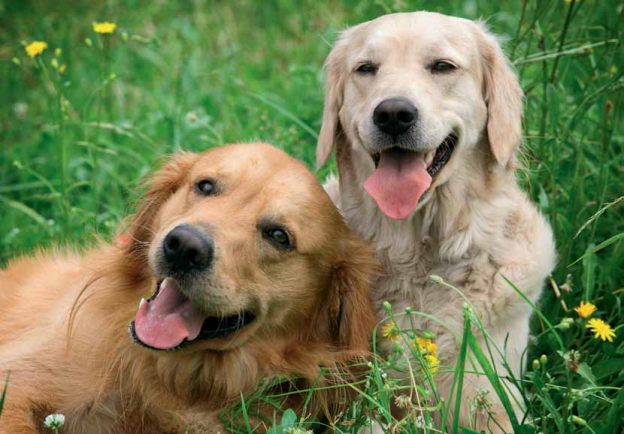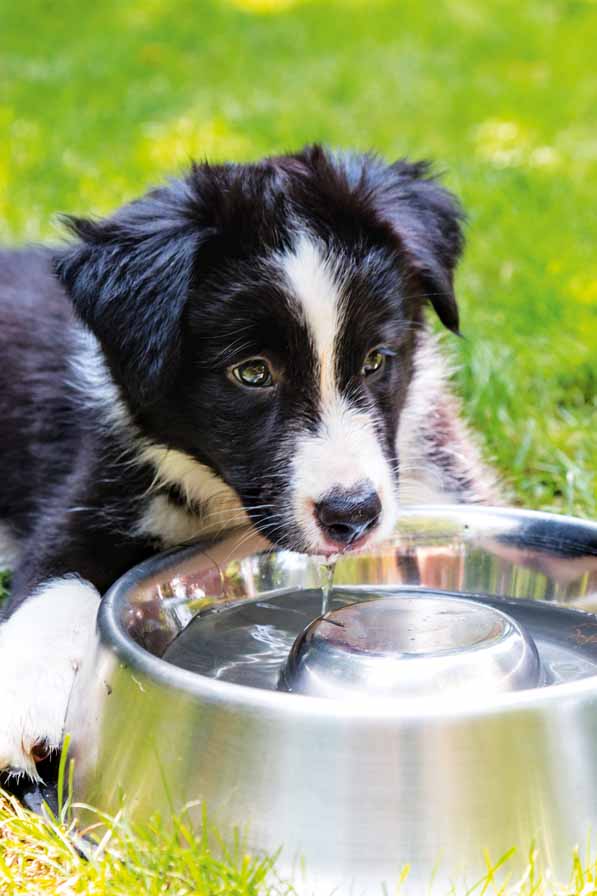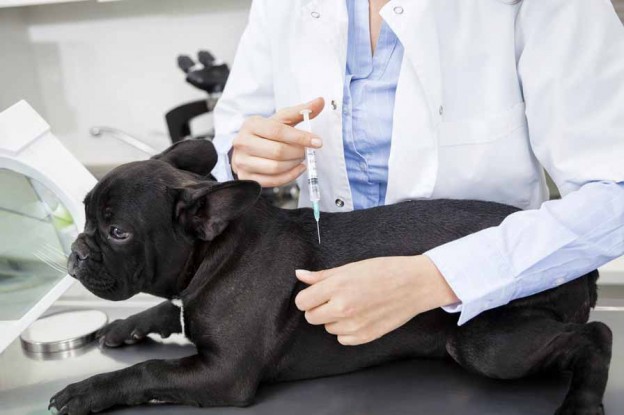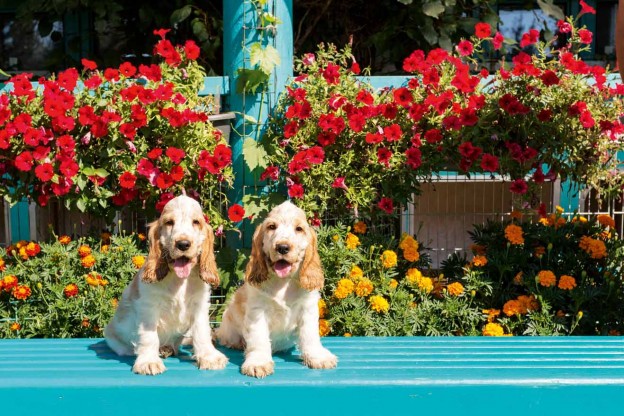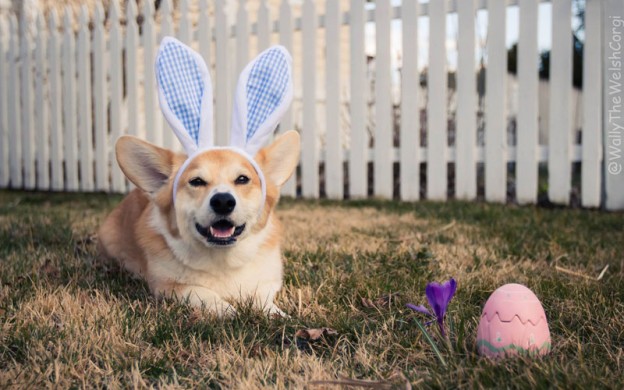
Finding yourself in the firing line of a dog with bad breath is enough to send you reeling. Wendy Bartlett finds cures for bad dog breath.
Dogs love to dig up old bones, sneak food from the cat bowl or scavenge partly decomposed scraps from the compost bin. This behaviour may cause temporary bad breath, which is not a serious problem, but prolonged bad breath can be a sign of underlying health problems in need of urgent professional attention.
Causes of bad breath
Dogs Life caught up with holistic veterinarian Dr Douglas Wilson from Fullarton, South Australia, to find out what causes bad breath in canines.
Signs of a healthy mouth include pink, flattened gums, no tartar buildup, even gum line and no broken or damaged teeth. Dental problems, like tartar buildup, gum disease and loose and diseased teeth, are the main reasons for bad breath in dogs, Wilson explained. Partly decomposed food particles remain in the mouth after eating, creating the perfect breeding ground for oral bacteria.
Decomposed food, bacteria and minerals combine to form plaque, which can be seen on the sides of the teeth as a thin brownish-yellow layer. Its this plaque that causes bad breath.
Other causes of bad breath include infected oral tumours, abscesses and some systemic diseases such as liver and kidney problems.
Gum disease begins along the tooth root margin, Wilson said. He added that tartar buildup can cause the gums to become reddened and inflamed and in severe cases bleeding can occur, making it easy for bacteria to enter the blood stream.
One of the main concerns is that bacteria in the blood can settle somewhere else in the body, for example in the valves of the heart, and this could lead to endocarditis (inflammation of the lining of the heart cavity and valves) which is potentially fatal, he warned.
Gum disease and dental infections
Gum disease has the potential to affect the health of major organs, but the reverse is also true. Familiarising yourself with the health of your dogs mouth and teeth is the best way to prevent major organ diseases.
Dogs Life also discovered that teething puppies can have temporary bad breath. Sometimes they can develop a bacterial infection if they have retained deciduous teeth, said veterinarian Dr Sue Briggs from Nairne, South Australia. This can lead to overcrowding, where dirt and debris can become caught between the teeth which can be a bit smelly.
Excessive drooling can inflame the outer lip, but the problem should resolve itself once teething has finished, she said. She advises concerned dog owners to visit their vet for a thorough dental check-up.
Oral tumours and abscesses can cause foul-smelling breath and facial swellings. If the dog had an infection, you might see swollen gums and maybe pus coming out, and sometimes they can have a swelling on their face, under the eyes, from an infected tooth, Briggs said. Immediate extraction of the tooth under an anaesthetic is required.
If the dog is going to have dental work done, the vet will place the animal on antibiotics before the surgery because the work itself can disturb the bacteria and cause bleeding, which means bacteria could get into the blood stream, she said.
Wilson doesn’t always prescribe antibiotics after dental infections. There are options to using antibiotics, he said. You have to treat whats causing the problem.
Depending on the type and severity of the infection, Wilson prescribes a suitable herbal or homeopathic preparation, but he said this is always combined with dentistry and not instead of it.
How to treat and prevent bad breath
Briggs recommends an annual visit to the vet for a dental check-up unless the animal has a history of dental problems, then probably twice a year. Raw, red meaty bones are great for massaging the gums and preventing tartar buildup as long as the dog spends at least 10 to 20 minutes chewing.
For puppies and small dogs, chicken necks are quite good, although I don’t recommend them in medium to large dogs because they can swallow them whole, Briggs said.
She suggested trying lamb shanks or marrow bones. Puppies can be given bones from eight to 10 weeks of age and for those dogs refusing to accept bones, try offering raw vegetables, like carrot or turnip, a nylon bone, rawhide or enzyme-impregnated products.
Enzymes work by attacking the bacteria on the teeth and mouth, therefore reducing the buildup of tartar, she explained. Enzyme-enhanced products include mouthwashes; gels, which can be placed on the inside of the lips; and gums or toothpastes, which can be brushed onto the teeth or rubbed on with a cloth.
Briggs suggested using a gel for inflamed gums and smelly breath even if the dog doesn’t have dirty teeth.
Some of those gels seem to be quite good in settling down the bacteria and keeping the gums less inflamed, she said. For a dog with hidden crevices between its teeth, tartar might still accumulate even if bones are part of the animals diet. Adding products that control oral bacteria to the dogs drinking water can help reduce tartar buildup in these areas.
Toothbrushes and toothpastes specifically designed for dogs are available on the market, but for an inexpensive alternative try using a soft-bristled children’s toothbrush and some chicken or beef stock powder.
Never use human toothpaste because it contains components that are not suitable for animals. The success of teeth brushing depends on the temperament of the dog and how early daily brushing are introduced, Briggs said.
Natural is best
The holistic approach to curing bad breath is to find out the cause before an appropriate treatment can be advised.
We tend to look at the animals diet, said Michelle Watson, a naturopath from the South Australian College of Natural Medicine in Adelaide and Marnis Natural Medicine Clinic in Clarence Gardens, South Australia. Often bad breath is due to a lot of processed food. We look at what they are eating and try to get them back to as natural a diet as possible.
Watson suggested raw food, like lightly steamed veggies, chicken necks and chicken wings, depending on the size of the dog, and even chicken carcasses.
Parsley is really good. Its excellent for their digestion and it also sweetens their breath. We incorporate it into their food, said Watson, who recommends adding chicken mince, tinned salmon and tuna to the diet.
For temporary bad breath, naturopath Margaret Thomas told Dogs Life the antiseptic properties in Sage are useful for reducing oral bacteria when the leaf is rubbed over the teeth.
The best thing for cleaning their teeth would be a sage leaf and it feels really good afterwards, she said.
Thomas also recommends feeding dogs plenty of bones and adding Vitamin C in powder form and Echinacea as a tincture, extract or herbal tea to the animals diet to improve the immune system.
There’s a homeopathic remedy called Fragaria, which is made from strawberries, Thomas said. Properties in the strawberry can help dissolve tartar.
I say to people try mashing strawberries over the teeth. That’s the sort of thing the dog wouldn’t mind, she said.
Early disease detection
Bad breath may be a sign of serious health problems. Knowing whats normal in your dogs mouth is essential for early detection of disease. Weekly oral examinations and a diet full of fresh natural foods, plenty of meaty bones and, if your dog tolerates it, daily teeth brushing are the best ways to keep your dog in excellent condition. This means fewer visits to the vet for expensive dental work and no more smelly breath from your beloved pooch!
Case study
Katherine Fields two dogs, Dharma, a seven-year-old Maltese Shih Tzu cross, and Lostris, an eight-year-old Corgi Pomeranian cross, recently visited their vet for dental work.
Dharma normally has bad breath because of her underbite, Field told Dogs Life. Fields vet told her that both animals needed professional cleaning of their infected teeth.
They had to go on antibiotics for a week before they had their teeth cleaned, she said.
After experiencing dental problems with her own dog, Fields mother religiously gives her dog a bone and cleans its teeth with a toothbrush every day. Field cannot see this ritual being possible in her household.
If your dog lets you, its all right, but with my two dogs there’s no way they’d let me brush their teeth, she said.
Field also has problems giving her dogs bones. Lostris gets very possessive with bones and it becomes a hazard with James, she said, referring to her young son. Lostris even guards the doggy door when he has a bone so Dharma can’t go outside.
The vet recommended using tartar-reducing chewable treats and a solution to add to her dogs water bowls, combined with regular teeth checks.
Signs of periodontal disease
- Drooling
- Red, swollen and bleeding gums
- Broken teeth
- Blood in saliva
- Loss of appetite
- Yellow-brown tartar along the gum line
- Bad breath
- Favouring one side of the mouth when eating
Causes of bad breath
- Dental problems
- Puppy teething
- Eating decaying organic matter (old bones, dead animals, decomposing food scraps)
- Organ diseases
- Broken or damaged teeth and gums
- Oral tumours or abscesses
Breeds susceptible to dental problems
- Maltese Terrier
- Cavalier King Charles Spaniel
- Chihuahua
- Poodle
- Pug
- Lhasa Apso
- Pekingese
- Dachshund
- Tibetan Spaniel
- Yorkshire Terrier
- Shih Tzu
- Toy breeds in general
Want more articles like this? Subscribe to Dogs Life Magazine



